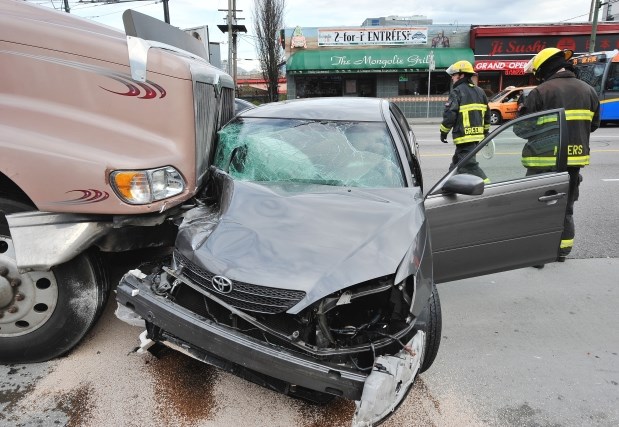Problems at ICBC are just the tip of the iceberg for understanding the troubles with our transportation system. With so many things to complain about, I wonder if there is some underlying barrier to making good decisions. That caused me to consider what drives the decisions related to our transportation system.
The focus has been on ICBC’s bottom line and against advocates. This blame game is being used to justify taking away rights of an injured party to recover damages caused by another person in a motor-vehicle crash. Insurance is supposed to be protection against such harms, but this appears to be less important than keeping insurance rates arbitrarily low.
Instead, government is restricting claims by limiting the amounts that can be recovered and how such claims can be presented in court. Clearly, this will be an advantage to ICBC and those who cause the damage.
Unfortunately, the approach the government is taking will not solve the problems that are exposed through the financial difficulties of the insurance business. Instead, we are ignoring the real issues and passing on the costs to society.
Let’s examine the real issues. According to ICBC data, in 2017 there were more than 350,000 car crashes in B.C. Since 2013, the number of motor-vehicle crashes has increased by 34 per cent and injuries or fatalities by 22 per cent. That translates into 67,000 injuries and fatalities in 2017. Why?
Every driver is unique. Think of the range of skills and physical abilities across the driver spectrum. Plus, the simple growth in number of vehicles on the roads, distractions and complexities of operating today’s vehicles have significant impacts.
The amount of available space dedicated to motor vehicles is limited, especially in urban environments where there is demand for reallocation of this space for alternatives, including pedestrians, mobility scooters and cyclists. How are e-bikes and scooters going to fit in?
Our transportation systems are failing. Why is the provincial government implementing policies focused on reducing ICBC costs by restricting rights and benefits for the injured? Is there some hidden agenda against plaintiff advocates? Even minor injuries can result in significant economic costs, and restricting benefits does not make those costs disappear.
Further to this, as of February the provincial government has arbitrarily restricted lawyers advocating for their clients by limiting the amount of expertise they can bring to courts. For cases valued at under $100,000, only one expert is allowed and for more serious cases the limit is now three experts. Next year these rules will apply to all personal-injury cases.
The goal of these changes is not to make roads safer or even to help those injured return to health and well-being, but to arbitrarily keep insurance rates low. There is no other reason for these poor policy decisions.
Instead, if the government truly wanted to help protect us against the ravages of our transportation system, it would put all its effort into reducing the causes behind the carnage.
There are many ideas on how to do this, especially given the new technologies available today, with much more coming. Start with realistic enforcement, policies to reduce the need for private automobiles, better street design focusing on pedestrians and cyclists, and reducing speed limits, especially in urban areas.
Improved vehicle technology will bring significantly better vehicles to our system. With well-thought-out insurance incentives, we can drive buyers to seek newer safety features.
The most important thing we can do is make sure that the proper prices are charged to all drivers for the serious risks associated with driving. Society cannot afford to subsidize bad behaviour on the backs of those who suffer injuries through no fault of their own. That is simply wrong. Although some votes will be bought, at what price?
Moving to economically sound transportation takes time, but the pressure is building. There is no time to waste. We must reduce transportation conflicts, especially those that cause personal injuries.
Robert Wickson lives in Saanich.



